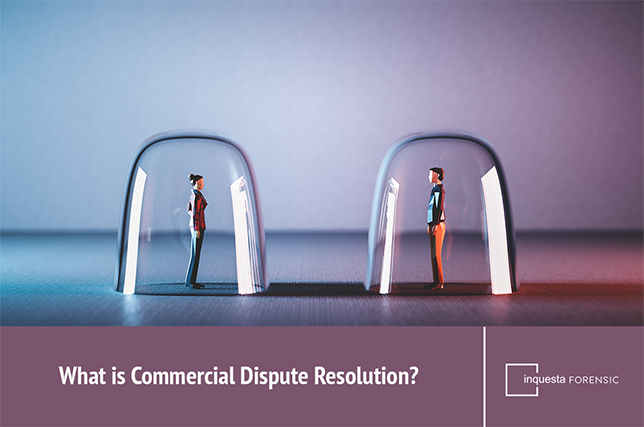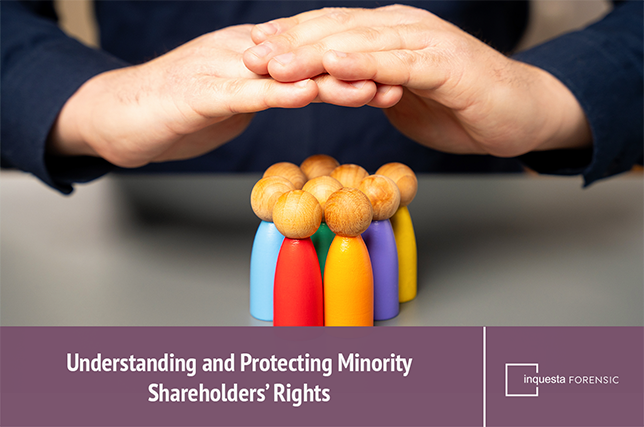Unfair prejudice cases can be stressful and ugly situations to be in for both sides of the dispute. Such incidents can have a lasting impact on the relationship between a shareholder and the company they invest in. It could have significant financial implications for both sides, and could forever change the dynamics of the company involved.
Find out more about unfair prejudice cases, what they are, how to test against them, and the best methods of prevention in our guide.
What is Unfair Prejudice?
Unfair prejudice is where the interest of one or more minority shareholders in a limited company find their interests impeded by the majority shareholder. Typically this comes in the form of a business being run and operating purely at the behest of the majority shareholder, benefiting them to the disadvantage of any minority stakeholders.
Unfair prejudice is most prevalent among companies where the majority shareholder also has control at the board level.
A minority shareholder faced with unfair prejudice may wish to take their position to the courts. Should they be able to prove that a company/majority shareholder’s actions have negatively impacted their interests and undermined their position as minority stakeholder — the court may demand that the majority shareholder purchase the total shares of the claimant(s) for their fair market value.
Another alternative conclusion to a case of unfair prejudice may be to negotiate an amicable conclusion. This is popular as prejudice claims, when taken to court, will often become personal and acrimonious, likely negatively impacting all parties, and potentially the business in question as well.
How to Test Unfair Prejudice
Due to there not being a clear list of actions (or inactions) that qualify, working out how to test unfair prejudice can be difficult and generally objective. To ensure that your business can’t be caught out down the line, you must make sure that your actions could not be construed as prejudiced by any hypothetical bystanders.
To test potential unfair prejudice, all you can really do is check that conduct could not be seen as causing any harm, nor could it ever be construed as unfair to any one party.
Under section 994 of the Companies Act, when it pertains to unfair prejudice, any possible claimant must:
- Be able to prove that the alleged unfair, prejudiced activity relates directly to the day-to-day running of the business
- Be able to prove that the action or inaction negatively impacted the shareholder or shareholders
- Be one of the shareholders affected by the incident in question
In addition, for unfair prejudice to be provable, the claimant must be able to demonstrate that the activity has actually negatively impacted or prejudiced their standing as a shareholder of the business. It is vital that the claimant can actually prove prejudice — anything unrelated to the standing or value of their shares is seen as irrelevant.

Unfair Prejudice Examples
Due to it being a flexible concept, unfair prejudice examples can be hard to pinpoint. However, things such as directors breaching their duties, paying themselves bonuses while neglecting dividends, and diverting business to another company that the majority shareholder has a vested interest in could all qualify.
An important indicator of unfair prejudice examples would be that the incident in question cannot have merely upset one party or bruised egos, it must have had a serious financial impact on the aggrieved party directly caused by actions benefiting the majority shareholder.
A selection of potential unfair prejudice examples includes situations where the majority shareholder:
- Offers certain promises to the claimant when they sign on to become a shareholder (such as management powers) but are then excluded.
- Pays themself a bonus while neglecting to pay dividends
- Diverts business to another company in which they hold a vested interest
- Breaches Articles of Association or a Shareholders’ Agreement
- Is unable to organise and hold the expected Annual General Meetings (AGMs)
- Regularly fails to inform stakeholders of their investments health, the company affairs, etc.
Remedies for Unfair Prejudice Cases
The most common legal remedy when dealing with unfair prejudice cases involves the courts. Generally, if you are the party petitioning, the act of taking the case to court is likely to lead to a result one way or another — be it through the court making a ruling, or the offending party settling.
Should the court route be pursued, the actual punishment of the offending party is never certain. The Companies Act states that when it comes to unfair prejudice cases, the court can ‘make such an order as it thinks fit’.
However, the most common punishment in these cases is to force the shareholder deemed to have unfairly prejudiced to purchase the other party’s shares while ceasing any perceived prejudiced conduct immediately.
Petitioners
As a minority shareholder, it is important to take measures that could assist in any potential future unfair prejudice cases. This should be done in order to attempt to avoid the stress and heavy costs associated with court intervention. Such preemptive steps to minimise exposure and maximise your case’s strength can only be a good thing should the time come.
A common method of doing this would be to take measures that ensure your interests are factored into the company Articles of Association/shareholder agreements, ensuring maximum protection for both yourself and your fellow minority shareholders.
Defenders
Unfair prejudice cases taken out against you can not only prove costly, they can have a serious, long lasting impact on your firm’s reputation. Once your company has a reputation as one that would willingly defraud or otherwise swindle a minority shareholder, it is very difficult to shake it off.
Therefore, the best method of avoiding an unfair prejudice case is likely to prevent it. A common method of doing this is to instruct an outside professional to analyse the day-to-day operation of your business, including shareholder relations, and assess whether there are any clear risks at that time of an unfair prejudice case in the firm’s future.

What Inquesta can do to Help During Unfair Prejudice Cases
The lasting impact unfair prejudice cases can have on all parties involved is often significant. As is often in situations of commercial dispute such as this, it is often beneficial to contact an expert to assist before considering more drastic, time consuming, and more expensive options such as the court.
Should you find yourself either in the position of wishing to protect yourself against a potential unfair prejudice case down the road, or are in the midst of one and looking for support and expert advice, Inquesta’s team of professionals are on hand to help.
Our team has been operating in the field of commercial disputes for decades. They have been there before, assisted companies of all shapes, sizes, and industries, and seen everything there is to see. This is why we can guarantee that our assistance and support can set you on a path to the most positive and least damaging conclusion possible.
For more information about what Inquesta can do to assist in unfair prejudice cases, get in touch with a member of our expert team today.
- Your Partner’s Been Convicted: Can They Take Your House? What Section 10a POCA Means For You
- The Essential Role of Forensic Accounting in High Net Worth Divorce
- How to Value a Startup Business: A Guide for UK Entrepreneurs
- Pig Butchering Scams: Guide to Crypto Romance Fraud
- Shareholders’ Disputes: How Business Valuation Helps with Shareholder Dispute Resolution









